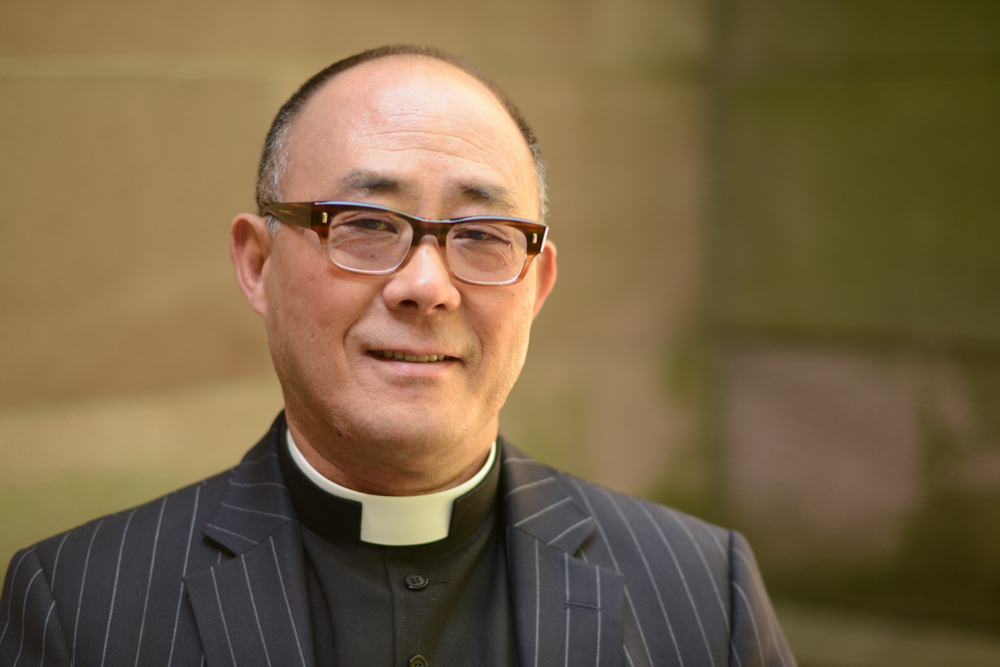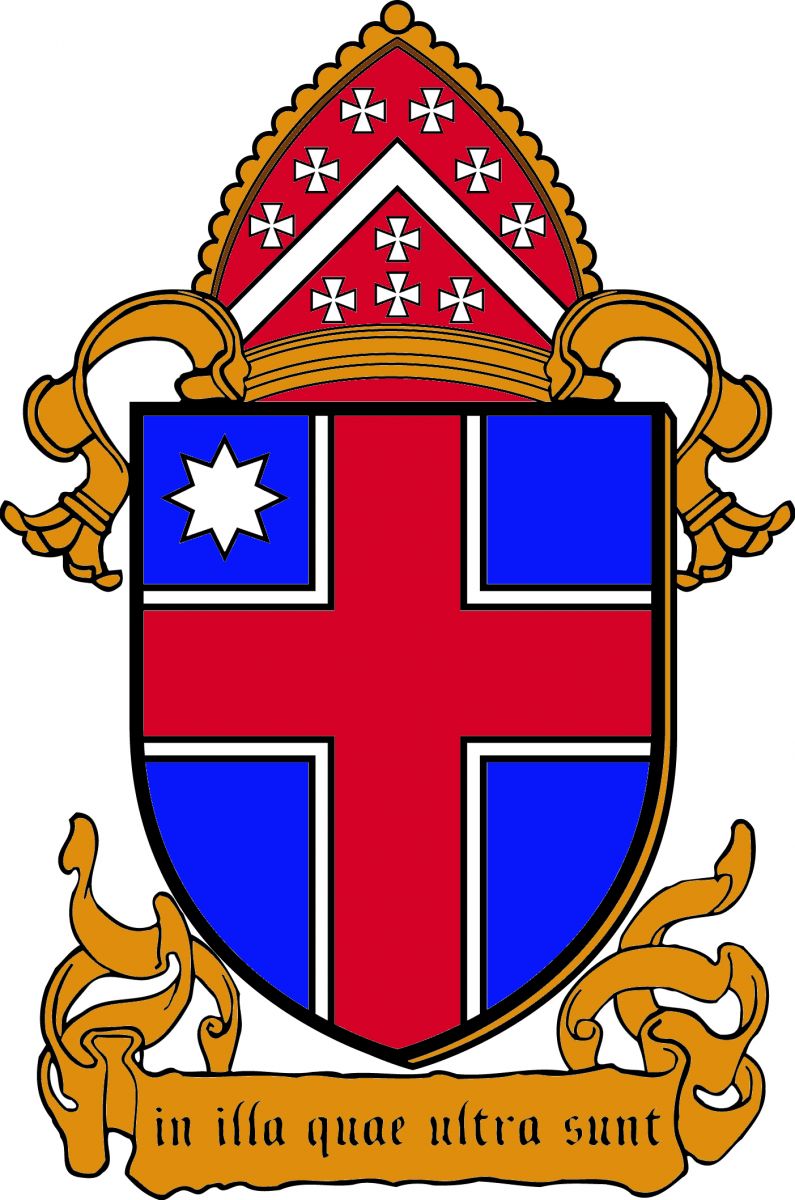
March 18, 2021
The Rt Rev’d Allen Shin
In the Gospel story today, Jesus makes an odd reference to a story from the Book of Numbers, saying, “Just as Moses lifted up the serpent in the wilderness, so must the Son of Man be lifted up, that whoever believes in him may have eternal life.” So what is this story about?
The Israelites have been on a treacherous, long journey in the wilderness. They have endured hunger and pain, and many of their families and friends have died in this journey. Even Aaron their priest just died, and his son Eleazer inherited the priestly position and duties. They have been refreshed at Mt. Hor and even fought against a Canaanite king of Arad and won. As they are about to set out toward their destination, however, Moses decides to take a detour and go southward around the land of Edom rather than fight the Edomites to cross the land of Edom to the Promised Land.
The Israelites are not happy with the prospect of a prolonged journey in the desert. They become disillusioned with Moses and rebel against him, saying, “Why have you brought us up out of Egypt to die in the wilderness? For there is no food and no water, and we detest this miserable food.” The food they have come to detest is the manna from heaven which they have been eating everyday for some time. Now they “loathe this despicable bread.” That is what the Hebrew text literally conveys. In rejecting the manna from heaven, they are rejecting God, and that gets them into a deadly trouble as the story unfolds.
God sends poisonous serpents which bite the rebellious people and kill them. The Israelites plead with Moses for help and he, in turn, intercedes to God on their behalf. God commands Moses to make an image of the poisonous serpent and lift it up on a pole for the people to look at and live. Moses does as God commands, and those who were bitten by the serpent could look at the bronze serpent and live. The Hebrew word here means more than merely “looking at” but means “having regard or respect for, or paying attention to.” With the brazen serpent on a pole, God finally gets their attention and respect. Beholding the brazen serpent is a gesture of repentance, turning around toward God and trusting in God’s power to save them.
For the past year, we, too, have been on a journey through a wilderness of sorts, the pandemic wilderness. Although our one-year journey through the pandemic cannot be compared to Israel’s forty-year journey in the wilderness, the cost of our journey has nonetheless been real and tragic. A priest at one of our parishes in The Bronx had to do eight gravesite burials within the first two months of the pandemic and a half dozen more since then. A year on, over a half million people have died from COVID in this country and over two million worldwide. It has also brought an insurmountable economic toll on many people. The food pantries at our parishes are all reporting a double or a triple increase of the people they serve. The unemployment and the homelessness have increased to an alarming level. On top of it, the pandemic has exposed the deeply seated disease of the systemic racism and the culture of white supremacy in this nation. The impact of the multifaceted pandemic has been profound and horrific especially on the people of color in the marginalized and underprivileged communities.
As the pandemic became prolonged, people became exhausted and agitated. We have seen people rebel against the public health measures and against the leaders who tried to implement them. Even some of our elected leaders have abandoned the moral leadership on this. They are rejecting the manna of wisdom and compassion for political gain and expediency. The soul of America has been infected by the poisonous lies and conspiracy theories, which has fractured our democracy to a near breaking point. What will bring this broken soul back to health?
Right after his refence to the Book of Numbers, Jesus gives this mysterious teaching: “For God so loved the world that he gave his only Son, so that everyone who believes in him may not perish but may have eternal life.” In this Gospel story, Nicodemus is visiting Jesus by night. He is a Pharisee, so a religious man and a knowledgeable teacher of the Law of Moses. But all the knowledge he has cannot save him. In his answer to Nicodemus, Jesus gives him words that are as mysterious and mystical as they could be—being born from above, being born of water and the Spirit in order to gain eternal life, and now God giving his only Son to save those who believe. What is Nicodemus to make of these words? What are we to make of these words? They are no less mysterious and mystical to us today than they were to Nicodemus. Yet, they are the reassuring and hopeful words we need in times of crisis such as this.
Since the time of the early Church Fathers, the brazen serpent has been interpreted as a type of Christ on the cross. Augustine of Hippo, for instance, writes in his sermon on this passage: “What are the biting serpents? Sins, from the mortality of the flesh. What is the serpent lifted up? The Lord’s death on the cross.” Then in his classic fashion a few sentences later he connects this to Christ’s resurrection: “Death was absorbed in the body of Christ. So also shall we say in the resurrection, when now triumphant we shall sing, Where, O death, is your contest? Where, O death, is your sting?”
The mystery of the Cross is at the heart of the Christian faith. And death and resurrection is the Christian paradigm of life. Christ crucified reveals the mystery of the love of God, the self-giving, unconditional, all-forgiving and everlasting love. It is this love and this love alone that saves us. Paul says in First Corinthians, “If I have prophetic powers, and understand all mysteries and all knowledge, and if I have all faith, so as to remove mountains, but do not have love, I am nothing… .And now faith, hope, and love abide, these three; and the greatest of these is love.” With all his faith and knowledge, one thing Nicodemus has failed to unlock is the wisdom and the life-giving power of love. Love is life.
The love of the crucified Christ is our manna from heaven of which we partake in the Eucharist. But, how easy it is to trivialize it into an empty ritualism or to privatize it as a personal need! And how easy it is even to reject it in our daily life! Partaking of the manna from heaven requires from us the labor of love, loving our God and loving our neighbors as ourselves and even loving our enemies. Archbishop William Temple defined Church as the only society that exists for the benefit of its non-members. In partaking of the Body of Christ, we must be ready and willing to be broken for the benefit of the world.
I am hungry for this manna from heaven. I am hungry for love and for a beloved community that truly and deeply incarnates God’s healing love. Only the love of the crucified Christ can heal the broken souls. Perhaps this Easter will be different. Perhaps we can make a fresh new start of our common life and get it right this time. That is my hope. That is what I am hungry for. That is what keeps me moving forward in my journey. What are you hungry for? What do you hope for? What keeps you moving forward in your journey?
[From a sermon preached at Evensong in the Virtual St Luke’s Chapel, March 17th 2021]
